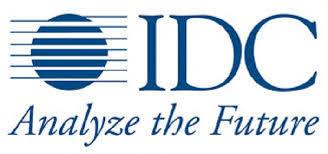By : Mohamed Shawky
The Middle East, Turkey, and Africa (META) smart home devices market – which includes smart home appliances, home monitoring/security, lighting, smart speakers, thermostats, and video entertainment devices – saw strong growth in the final quarter of 2019. That's according to the latest insights from International Data Corporation (IDC), which shows that the market expanded 35.6% year on year in Q4 2019 to reach 5.3 million units.
IDC's research shows that the growth rates varied significantly across the different product categories that make up this market, with smart video entertainment continuing to be the main driver of both shipments and revenue in the region. At the other end of the scale, shipments of smart speakers experienced a year-on-year decline in Q4 2019. "As things stand, smart speakers do not support Arabic for voice-enabled commands, which is obviously a key inhibitor of uptake within this region," says Isaac T. Ngatia, a senior research analyst at IDC.
The home monitoring and security category is a very robust category within the META region, with vendors addressing a wide variety of consumer needs, including smart cameras, doorbells, door locks, sensors, and smoke detectors. Amazon, TP-Link, and D-Link are the key players in this space by virtue of pushing devices to the market at attractive price points. However, the category is highly fragmented across the region, as different markets have different needs.
|
META Home Monitoring & Security Category – Vendor Shares, Q4 2019 |
|
|
Company |
Unit Share |
|
Amazon.com |
14.9% |
|
TP-Link |
11.8% |
|
D-Link |
10.7% |
|
|
7.7% |
|
Xiaomi |
5.3% |
|
Others |
49.6% |
IDC believes that a general lack of awareness around availability is constraining uptake and growth in the META smart home devices market and preventing it from reaching its full potential. Educating consumers on the installation and use of smart home devices will go a long way to deepening the market for these devices. This approach will also help to mitigate concerns around security and privacy.
Overall, IDC expects the META smart home devices market to see continued growth over the coming years as vendors push their devices to the market. This push could either be through existing channels or new relationships. Some of these include collaboration with traditional retailers by seeking shelf space in retail outlets, and also through working closely with home automation specialists and installers of smart home devices.












































































